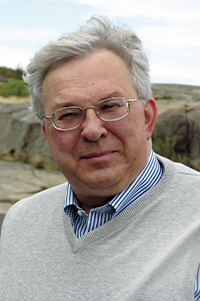 Engineering Reputations
Engineering Reputations
A new book raises questions about who can deem themselves an engineer and the role of the profession in society.
By Henry Petroski
James Dyson is perhaps best known for inventing the vacuum cleaner that never needs a replacement bag. In his recent book, Invention: A Life, he describes the appliance’s arduous development process, including 5,127 prototypes. But, ironically, in a 2010 Harvard Business Review interview, he stated that “there’s no such thing” as an inventor: “You’re an engineer or scientist who develops technology to create something new and better.”
The word engineer or engineering appears on average once per page in Dyson’s memoir. He clearly holds engineers in high esteem, calling himself one even though he studied art and interior design. His half-century of work with engineers made him an apologist for the profession and a keen observer of how engineers are perceived.
Dyson learned engineering the old-fashioned way: by doing it. After graduating from London’s Royal College of Art, he went to work for a controls company, where he discovered “the connection between design, engineering, art, and science.” He credits the engineer Jeremy Fry, inventor of a “high-speed, flat-bottomed landing craft,” with giving him sole responsibility for developing, i.e., engineering, it into the marketable Sea Truck. The successful accomplishment of that project gave Dyson the self-confidence to develop an improved wheelbarrow and his revolutionary vacuum cleaner.
Dyson believes the engineering profession has not achieved the status it deserves. He outlines how, since the era of the heroic Victorian engineers, the profession has been “overshadowed in schools by humanities.” Engineering and the industries it serves have been viewed “as somehow grubby… uncultured and even anti-intellectual.” Furthermore, these endeavors are “even more looked down on in Britain today,” as he learned seeking support for his manufacturing enterprises from financial and governmental institutions dominated by liberal arts majors with little knowledge of engineering.
Concurrently, according to Dyson, “American schools valued science and technology.” This may have been his perception from across the pond, but it does not square with my experience. I was an assistant professor in Austin, Texas, when Vietnam protests were commonplace and my non-engineer colleagues considered engineering more than grubby; they saw it as downright evil and its practitioners immoral. We young engineering faculty members were harassed just for having coffee with company representatives visiting campus to recruit students to what activists vilified as the military-industrial complex.
At Duke a decade later, I encountered less overt contempt but more covert disdain for engineering. Humanists and social scientists dominated the administration and occupied prime campus real estate. Engineering had one building on Science Drive, which was close to the university’s coal-burning power plant but out of sight of the main quadrangle and bastion of the administration. The few engineers who were invited to serve on campus-wide committees were more tolerated than respected. There was talk of doing away with the school of engineering altogether.
That did not happen, because engineering alumni were among the university’s most generous donors and because our new dean was recruiting increasingly productive researchers to the faculty. It took years, but by participating more visibly and effectively in academic politics—offering solutions rather than just lamenting problems—engineers gained increasing respect and engineering greater status across campus.
But beyond the ivory tower, engineers and engineering were still mostly invisible. The popular media continued to credit—incorrectly—new inventions to scientists alone and novel skyscrapers to architects who made them pretty rather than to engineers who made them possible. The recognition for electrical engineering accomplishments went to computer scientists and the anonymous juggernaut of “high technology.”
My experiences and perceptions are anecdotal, of course. However, they do suggest that engineers might raise the status of the profession by demonstrating to the less technologically literate leaders of our institutions (including the media) that engineering is not a grubby pursuit but a neglected national asset.
Dyson may be correct that engineering has fared better in America, but it has lost the glory it gained when astronauts reached the moon. Although NASA no longer dominates spaceflight and exploration, if recent achievements by the engineers at SpaceX, Virgin Galactic, and Blue Dragon are any indication, engineering in both the United States and Britain may be poised to soar once again.
Henry Petroski is distinguished professor emeritus of civil engineering at Duke University.
Image Courtesy of Catherine Petroski